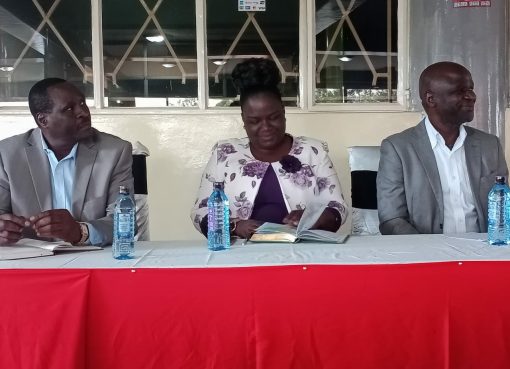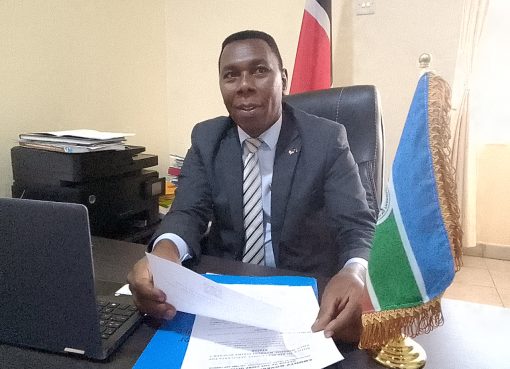The Kenya Copyright Board (KECOBO) has promised to ensure the three bodies that collect royalties on behalf of artists are merged for efficiency and proper management of the sector.
KECOBO Chairman Joshua Kutuny has observed that having one Collective Management Organisations (CMOs) to collect royalties will ensure efficiency and streamline the sector for the benefit of all artists.
He noted that the operation costs of the three CMOs, including the Kenya Association of Music Producers (KAMP), the Music Copyright Society of Kenya (MCSK), and the Performers Right Society of Kenya (PRISCK), are too high, thus draining the earnings of artists.
“There is a need to work from one front to be able to reduce the operation costs of CMOs, thus increasing returns to the artists and musicians,” said Kutuny when he met artists and musicians in Murang’a during a sensitisation forum.
He said some years ago, the collection of royalties was up to a tune of Sh 650 million back in 2019, but the amount has dropped to about Sh 150 million last year.
Proper management of the music industry, Kutuny said, will ensure royalties are collected from all consumers of music and the money is directly sent to artists.
“We are exploring various ways to see that the music industry is well managed, as there is also a proposal that the three bodies be collapsed into one organ so as to handle collections on behalf of the artists to help them celebrate their work,” said Kutuny.
He observed that the poor coordination and management of CMOs has made those who play or consume music in various areas walk away without paying for loyalties.
“KECOBO seeks to partner with various entities, including county governments through the Council of Governors and the NTSA, among other bodies which issue licenses to businesses that consume music.
“This will ensure business people, especially those who operate restaurants, eateries, and public service vehicles, get KECOBO permits before they are issued with operating licenses. This will increase earnings for music to more than Sh 1 billion annually,” explained the chairman.
The money raised, Kutuny said, will be shared among the musicians and artists based on their performances.
The chairman further noted that KECOBO will work to ensure artists are paid directly by companies instead of through intermediaries to avoid exploitation.
He described the current situation where some musicians, despite their performances and music being commonly played and listened to, are languishing in poverty.
“We are also working towards developing automated systems that ensure artists can know how many subscribers and views they have and how much money they have made. I know of some artists who have viral songs, but they don’t have anything to show for it. This is because some people are getting their money instead of them,” he asserted.
Kutuny further said that some years ago, CMOs were accused of brutality in the collection of royalties when they used police to enforce the law, saying they will now change tactics to ensure royalties are paid effectively and without using force.
Fielding questions from the press, he said that the increased income for the artists will help them acquire quality equipment and dress towards the production of quality music that will earn them good returns.
On his part, KECOBO Executive Director Edward Sigei asked artists to explore legal means to protect their work from being abused.
“When you sign a contract, make sure you read and understand the contents of the contract and have a copy with you. When in doubt, visit the Kenya Copyright Board offices and get free legal advice. Don’t give away rights to your work unknowingly,” Sigei emphasised.
The director called upon all artists to register as members of the Kenya Copyright Board, as they will not be helped if they are not members of the organisation.
By Bernard Munyao and Purity Mugo





